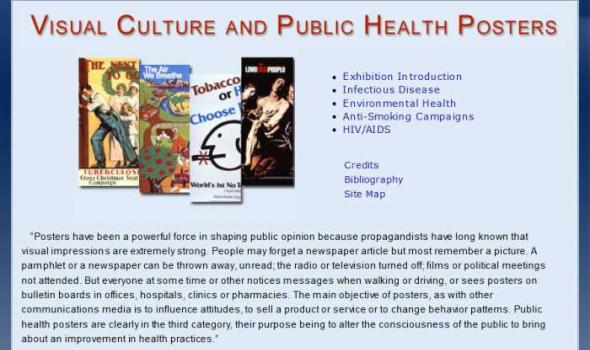Medical advertising
History of Medicine Chinese medicinal compounds were recorded as early as the Han dynasty, 2,000 years ago. Beginning in the 1880s, Western companies – notably Bayer, Hoechst (now Aventis), and Eli Lilly – challenged traditional medicine with the resources of modern capitalism. In turn, Chinese companies entered the new commercial markets: the Tianjin Pharmaceutical Factory, founded in 1921, used western methods to produce and market traditional Chinese medicines. The sheets shown here advertise a mix of European and Asian products, using ideal feminine and masculine images as well as the Tian An Men (Gate of Heavenly Peace). Ads for progesterone and methyltestosterone show the appeal of potent over-the-counter hormone therapies. 21 April 2010
History of Medicine Exhibition Introduction This online exhibit is designed to introduce you to the history of images used in public health posters in the twentieth century. It utilizes the world's largest collection of poster art dealing with questions of health in the United States, housed at the National Library of Medicine. Many of these images can also be viewed through the Images from the History of Medicine (IHM) homepage. The exhibit is divided into two sections that focus on infectious diseases and environmental health concerns, revealing how posters provide an effective medium for communicating information about disease, identifying risk factors, and promoting behavioral change.
This on-line version of Here Today, Here Tomorrow... presents a variety of printed medical ephemera from the collections of William H. Helfand and the National Library of Medicine. The exhibit was held at the National Library of Medicine, Bethesda, Maryland, May 22 through September 11, 1995.
Patent medicine is the term given to various medical compounds sold under a variety of names and labels, though they were for the most part actually trademarked medicines, not patented. In ancient times, such medicine was called nostrum remedium, "our remedy" in Latin, hence the name "nostrum"; it is a medicine whose efficacy is questionable and whose ingredients are usually kept secret.
The trade cards are small, colorfully illustrated advertising cards touting a particular medicine and its many cures. The illustrations often have little to do with any of the ailments purported to be cured. They were pure advertising and very collectible. The era of patent medicine began to unravel in the U.S. with the passage of the first Pure Food and Drug Act in 1906.



















